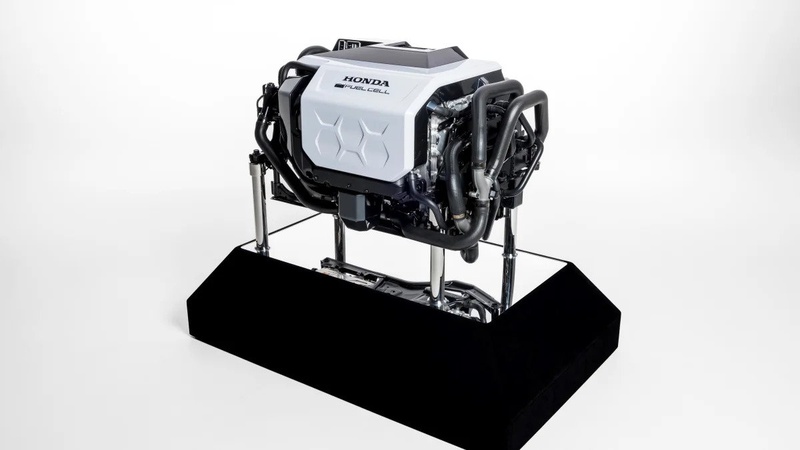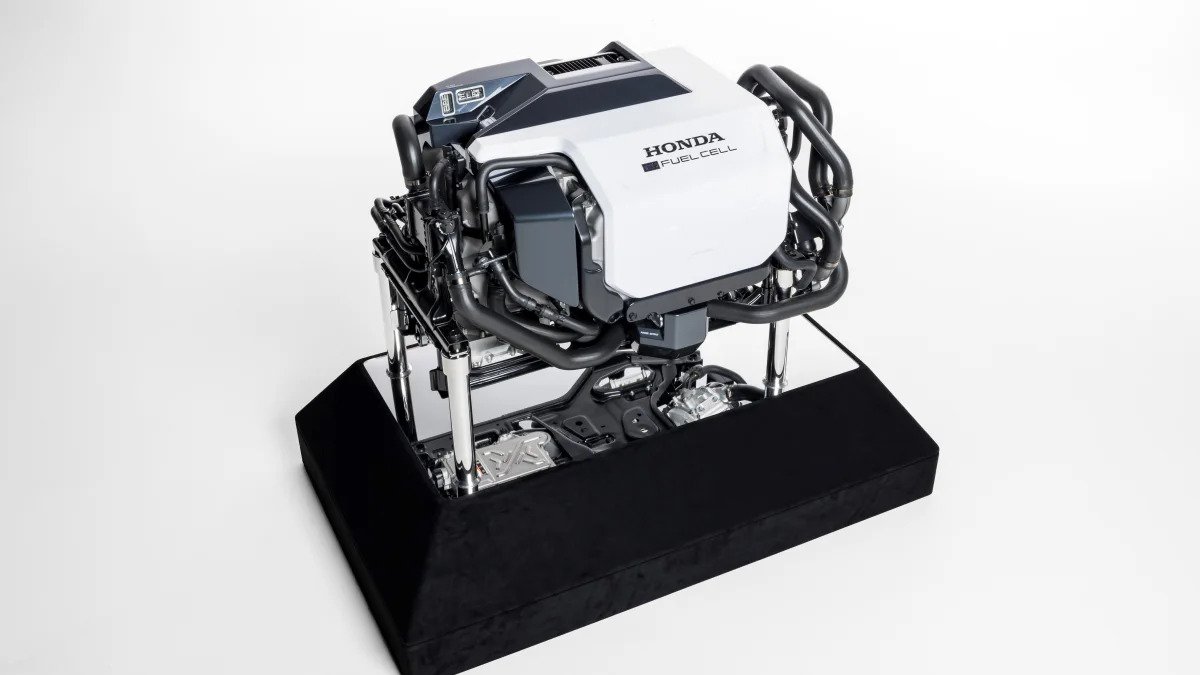The list of automakers investing time and money in hydrogen technology is relatively short. BMW is working with Toyota, notably unveiling an experimental hydrogen-powered X5 in early 2023, General Motors is developing the technology with Honda, and Hyundai is also a major proponent of hydrogen-powered vehicles. Hydrogen has many hurdles to overcome before it becomes mainstream, including a near-complete lack of refueling infrastructure, but Honda executives expect these issues to be overcome soon.
"We believe demand for the technology will soon reach the critical mass required for full commercial deployment," Ingo Nyhues, the deputy general manager of business planning and development for Honda's European division, affirmed in a statement.



Honda's next-generation hydrogen fuel cell
Honda did not provide technical details about its next-generation hydrogen drivetrain. It only described the system as a highly versatile unit that offers "compact dimensions, powerful output, outstanding durability, and the ability to provide quick start-up times even in low-temperature environments." It sounds like the development work is ongoing, but the company has already identified four primary use cases:
- A hydrogen-powered CR-V, slated for release in North America and Japan in 2024
- Heavy-duty commercial vehicles, with a prototype developed alongside Isuzu expected for testing by March 2024 and a potential market launch by 2027
- Stationary power generation, such as backup power for data centers
- Collaborative efforts to develop hydrogen-powered construction equipment
Source: Autoblog

